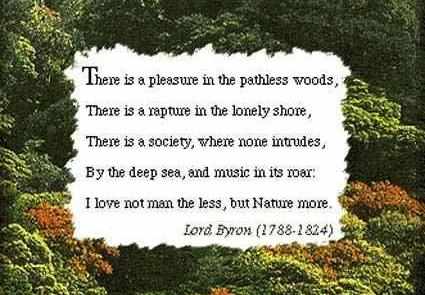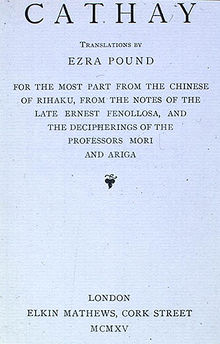Poetry in English Biography
Source(Gogle.com.pk)OSEPH RUDYARD KIPLING - BIOGRAPHY
Joseph Rudyard Kipling (1865-1936) was an English writer and celebrator of British imperialism and militarism. In 1907, Kipling was awarded the Nobel Prize for Literature. Kipling is perhaps most known for his collection of stories The Jungle Book, the novel Kim, and many other short stories and poems. Many of his writings for children have been preserved as exemplars of the genre. For the high quality of Kipling’s writing had him nominated for the British Poet Laureateship and knighthood. Rudyard Kipling rejected such honors. His talent is undeniable.
However, works like his poem “The White Man’s Burden” suggest the extent of his nationalism and racism. As the readership has become less tolerant of chauvinism and nationalism, Kipling’s reputation has suffered. This is particularly true for Kipling’s reputation in India where his reputation is particularly complicated and controversial since India took the brunt of the Imperial violence that Kipling glorified. Despite this controversy, it was announced that the home Kipling was born in (now on the campus of J J School of Art) would become a museum celebrating the poet of British Imperial.
Rudyard Kipling was born in Bombay (now called Mumbai), India on December 20, 1865. His family would return to England when he was five-years-old. His father John Lockwood was a professor of architectural sculpture at the Sir Jamsetjee Jeejeebhoy School of Art and Industry in Bombay. His father designed pottery and sculpted in addition to teaching. His parents identified themselves as Anglo-Indians. This identification reveals the importance of their British colonial status.
As a child, his Portuguese and Indian attendants would tell him stories that would later influence his writing. Kipling and his sister were sent to England and placed in the care of Captain and Mrs. Holloway. These two people took care the children of British families who lived in India. Kipling was five when he made this trip. Rudyard Kipling was cared for in a limited yet hostile way while living with the Holloways. However, Kipling did not always feel misery. He became infatuated with Florence Garrard who also was another boarder. She would influence the character Maisie inThe Light that Failed. At Christmas, Rudyard Kipling and his sister would visit their relatives.
In 1878, Kipling enrolled at the United Services College in Devon. This school was meant to prepare young men for military service. Kipling struggled at first, but later was able to maker friends in the college. His experiences would serve as fodder for later stories. His academic work was not rigorous enough for Kipling to gain a scholarship to attend Oxford University. Kipling’s father arranged a position as an assistant editor for Rudyard Kipling at the Civil & Military Gazette in Lahore, Punjab (now Pakistan.) Kipling dedicated himself to work at the newspaper at one point acknowledging that it was his “mistress and most true love.”
In 1883, the Kipling family stayed in the summer capital Simla. Between 1885 and 1888, Kipling would take a month-long leave. In 1886, Kipling published his first book of poems Departmental Ditties. The new editor of the paper asked Kipling to produce short stories that would be published. He began to gain recognition for his fictional works. Many of these stories would be collected in the collection Plain Tales from the Hills. Plain Tales from the Hills was Kipling’s first collection of prose and was published in Calcutta in 1888, shortly after he turned twenty-two.
Rudyard Kipling transferred to newspaper The Pioneer in Allahabad in 1887. Kipling had an insatiable compulsion to write and published six short fiction collections during the next year. In 1889, The Pioneer gave Kipling a six-months salary as a severance and released him from their employ. Kipling took the money and set course for London, the center of the British Literary Universe. Making his way around the globe, Kipling traveled to Singapore, China, Japan and the United States. While traveling throughout the United States, Rudyard Kipling wrote travel sketches that were published by his former employer. While passing through Elmira, New York, Kipling would meet the great American prose writer Mark Twain. This meeting would leave a deep impression on the younger writer. Kipling arrived in Liverpool in 1889 and soon finished his trek to London. It did not take long after his arrival in the Imperial capital for Kipling to be embraced as an important writer.
In London, Kipling found many editors eager to publish his stories. During the period between 1889 and 1891, Kipling also published his novel The Light that Failed. Rudyard Kipling and American author and publisher collaborated Wolcott Balestier on the novel The Naulahka. He also suffered a nervous breakdown. Kipling’s doctors advised him to travel, so he traveled to South Africa, New Zealand, and Australia. He, also, returned to India with the intention to spend Christmas with his family. However, he received the news that Wolcott Balestier had died of typhoid fever. Kipling returned to London. In the meanwhile, Life’s Handicap, a collection of stories about life colonial life in India, was published.
In 1892, Kipling married Carrie Balestier in London. The newlyweds honeymooned in the Balestier family home in Vermont before traveling to Japan. During the second leg of their trip, they discovered that their bank had collapsed. They returned to Vermont. Kipling’s wife was pregnant, and they stayed in the United States on a rented farm. Their daughter Josephine was born on December 29, 1892. It was during this period that Kipling began to work on the Jungle Books. Kipling also worked on the novel The Day’s Work and a volume of poetry called The Seven Seas.
Kipling built a house, named Naulakha in honor of his departed friend and their collaboration. The solitary life in Vermont helped Kipling regain his mental health. Despite the solitude, the Kiplings received visitors including Arthur Conan Doyle.
Kipling’s second daughter was born in 1896. However, Kipling’s marital relations cooled during this period. Kipling grew dissatisfied with life in the United States after American authorities claimed the right to have intervene in the British foreign policy in the Western hemisphere. Kipling felt that personally offended by the growing Anti-British sentiment in the United States. The nationalistic spirit of the United States and increased family tension with his in-laws provoked Kipling to leaving the United States and Returning to England.
In 1896, the Kipling’s settled on the coast of Devon in Torquay. During this period, Kipling’s writing took a more nationalistic tone. This works included “The White Man’s Burden” and “Recessional” which were viewed by some as jingoistic calls for continued empire building. Some defend Kipling’s nationalism and racism by claiming it is protected by a thin veil of irony. Starting in 1898, Kipling began a yearly trip to South Africa. These trips were to last until 1908. During this period, Kipling began to write in support of the Boer War and the cause of British Empire.
Josephine Kipling would develop pneumonia in 1899. She would eventually die from this condition. Kipling moved to East Sussex in 1902 where he purchased a house and other property. Kipling was awarded the Nobel Prize for Literature. In addition to awarding Kipling, the Nobel Prize Committee wanted to recognize all of the achievements of English literature. During World War I, Kipling began to write propaganda pamphlets. Kipling had only one son, John. John died in 1915 during a battle in the First World War. This loss inspired Kipling’s poem , “My Boy Jack.”
Kipling continued writing until the 1930s, but his production slowed. On January 18, 1936, Rudyard Kipling died from complications from his perforated duodenal ulcer.
Joseph Rudyard Kipling
Joseph Rudyard Kipling was an English poet, short-story writer, and novelist. (December 30, 1865 – 18 January 1936)
Poetry in English in Urdu SMS in Urdu Pics by Wasi Shah Wallpapers About Love on Facebook in English

Poetry in English in Urdu SMS in Urdu Pics by Wasi Shah Wallpapers About Love on Facebook in English

Poetry in English in Urdu SMS in Urdu Pics by Wasi Shah Wallpapers About Love on Facebook in English

Poetry in English in Urdu SMS in Urdu Pics by Wasi Shah Wallpapers About Love on Facebook in English
Poetry in English in Urdu SMS in Urdu Pics by Wasi Shah Wallpapers About Love on Facebook in English

Poetry in English in Urdu SMS in Urdu Pics by Wasi Shah Wallpapers About Love on Facebook in English

Poetry in English in Urdu SMS in Urdu Pics by Wasi Shah Wallpapers About Love on Facebook in English
Poetry in English in Urdu SMS in Urdu Pics by Wasi Shah Wallpapers About Love on Facebook in English
Poetry in English in Urdu SMS in Urdu Pics by Wasi Shah Wallpapers About Love on Facebook in English

Poetry in English in Urdu SMS in Urdu Pics by Wasi Shah Wallpapers About Love on Facebook in English

Poetry in English in Urdu SMS in Urdu Pics by Wasi Shah Wallpapers About Love on Facebook in English
+1.jpg)
Poetry in English in Urdu SMS in Urdu Pics by Wasi Shah Wallpapers About Love on Facebook in English

Poetry in English in Urdu SMS in Urdu Pics by Wasi Shah Wallpapers About Love on Facebook in English

Poetry in English in Urdu SMS in Urdu Pics by Wasi Shah Wallpapers About Love on Facebook in English
Poetry in English in Urdu SMS in Urdu Pics by Wasi Shah Wallpapers About Love on Facebook in English

Poetry in English in Urdu SMS in Urdu Pics by Wasi Shah Wallpapers About Love on Facebook in English

sadpoetryurdu1.blogspot.com
ReplyDelete